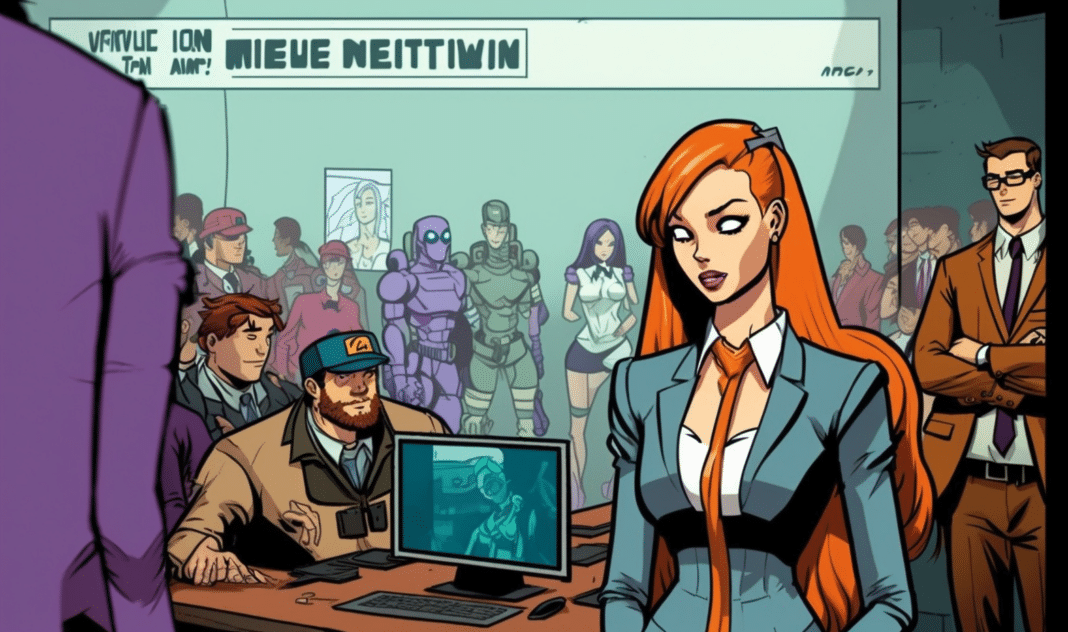Recruiting in the Metaverse is revolutionizing the talent war, and it may well be the future of recruitment. The Metaverse is projected to become a trillion-dollar industry, and it is already streamlining recruitment and reinvigorating talent engagement through virtual reality (VR) job interviews. In 2020, Zoom fast replaced in-person interviews, and now businesses are opting for Metaverse platforms to meet candidates as it makes remote collaboration more personal and immersive than 2D.
With agencies looking to hire fewer permanent positions in 2023, many think Metaverse job interviews can ensure companies are more accurate in hiring the right candidate. Research shows that Metaverse participants are 3.7 times more emotionally connected to content and four times faster at consuming content versus traditional methods.
There are many Metaverse platforms, and cashed-up companies are racing to experiment in hopes their recruitment platform will be the norm in the future. For instance, Hyundai last year teamed up with South Korean platform Zepeto to create immersive employee inductions, and Samsung used Gather to match job seekers with the company’s HR managers and staff. The Chat-based hiring app Hirect in February last year hosted the world’s first metaverse jobs fair, allowing hundreds of job seekers to meet brands.
Hays was the first recruitment agency to develop an office space in the Metaverse, and although they are not currently recruiting in it, they plan to further evolve its recruitment processes as the technology develops. The metaverse offers a practical platform for hiring without borders, allowing organizations to open their job opportunities to a global workforce. Using avatars and interacting in virtual reality rooms could be used in situations where several managers from different locations need to come together to interview a candidate. There’s also the option for applicants to meet potential colleagues in the virtual world, gaining a greater sense of everyday life at the organization.
Global advertising agency Dentsu is close to launching its recruitment platform. Partnering with LinkedIn and Microsoft, The LinkedIn Lounge will support the entire lifecycle of a business’ employee right from the moment they meet in a Metaverse interview right through to onboarding and finding ways to upskill in ways people actually want to engage.
In the near future, The LinkedIn Lounge will be able to locally and globally connect candidates with brands for interviews through their professional LinkedIn identities in these cool virtual spaces. The tie-in with LinkedIn is super important as it allows candidates to share their personal data and companies to share protected information in a safe and controlled environment, but still give that 3D immersive experience. It almost makes submitting a traditional CV less relevant, making recruitment more streamlined.
When Dentsu does pull the trigger, The Lounge will be just one part of the immersive world, with the Dentsu Metaversity, an evolution of the agency’s University offering, and other interactions coming to the 3D.
Recruiting in the Metaverse offers several benefits. It allows companies to access a global workforce, and candidates can meet potential colleagues in the virtual world, gaining a greater sense of everyday life at the organization. It makes recruitment more streamlined and accurate in hiring the right candidate, and it almost makes submitting a traditional CV less relevant. Recruitment in the Metaverse is becoming the norm, and it will become an essential aspect of recruitment in the future.
However, there are also potential downsides to recruiting in the Metaverse. One of the major concerns is privacy and data security, as it involves sharing personal data in a virtual space. Companies must ensure that they have robust privacy policies and data security measures in place to protect candidates’ personal information.
Another concern is the potential for bias in the Metaverse, as avatars can present a different version of ourselves that may not accurately reflect who we are. Companies must ensure that they have policies in place to prevent discrimination based on appearance, and they should also train their recruiters and managers to be aware of their biases when conducting interviews in the Metaverse.
Additionally, not everyone has access to the necessary technology to participate in the Metaverse, which may limit the pool of candidates that companies can reach. This could create a digital divide and exacerbate existing inequalities in the job market.
Despite these challenges, recruiting in the Metaverse offers a promising new way for businesses to engage with candidates and hire the right talent for their organizations. As the technology continues to evolve and more companies experiment with Metaverse recruitment, we can expect to see new innovations and improvements that will make the process even more efficient and effective. The future of recruitment is in the Metaverse, and businesses that embrace this new paradigm will be well-positioned to compete for top talent in a rapidly changing world.




